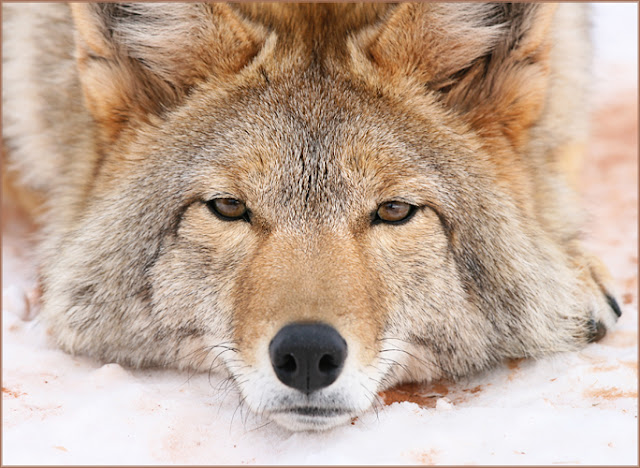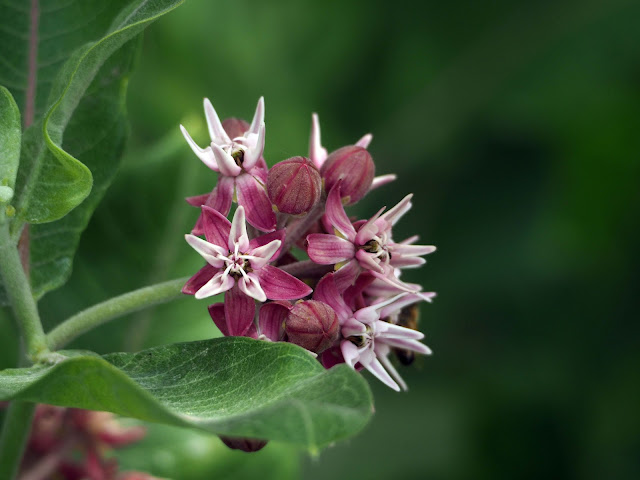With all its eyes the natural world looks out
into the Open. Only our eyes are turned
backward, and surround plant, animal, child
like traps, as they emerge into their freedom.
We know what is really out there only from
the animal's gaze; for we take the very young
child and force it around, so that it sees
objects - not the Open, which is so
deep in animals' faces. Free from death.
We, only, can see death; the free animal
has its decline in back of it, forever,
and God in front, and when it moves, it moves
already in eternity, like a fountain.
Never, not for a single day, do we have
before us that pure space into which flowers
endlessly open. Always there is World
and never Nowhere without the No: that pure
unseparated element which one breathes
without desire and endlessly knows. A child
may wander there for hours, through the timeless
stillness, may get lost in it and be
shaken back. Or someone dies and is it.
For, nearing death, one doesn't see death; but stares
beyond, perhaps with an animal's vast gaze.
Lovers, if the beloved were not there
blocking the view, are close to it, and marvel...
As if by some mistake, it opens for them
behind each other... But neither can move past
the other, and it changes back to World.
Forever turned toward objects, we see in them
the mere reflection of the realm of freedom,
which we have dimmed. Or when some animal
mutely, serenely, looks us through and through.
That is what fate means: to be opposite,
to be opposite and nothing else, forever.
If the animal moving toward us so securely
in a different direction had our kind of
consciousness -, it would wrench us around and drag us
along its path. But it feels its life as boundless,
unfathomable, and without regard
to its own condition: pure, like its outward gaze.
And where we see the future, it sees all time
and itself within all time, forever healed.
Yet in the alert, warm animal there lies
the pain and burden of an enormous sadness.
For it too feels the presence of what often
overwhelms us: a memory, as if
the element we keep pressing toward was once
more intimate, more true, and our communion
infinitely tender. Here all is distance;
there it was breath. After that first home,
the second seems ambiguous and drafty.
Oh bliss of the tiny creature which remains
forever inside the womb that was its shelter;
joy of the gnat which, still within, leaps up
even at its marriage: for everything is womb.
And look at the half-assurance of the bird,
which knows both inner and outer, from its source,
as if it were the soul of an Etruscan,
flown out of a dead man received inside a space,
but with his reclining image as the lid.
And how bewildered is any womb-born creature
that has to fly. As if terrified and fleeing
from itself, it zigzags through the air, the way
a crack runs through a teacup. So the bat
quivers across the porcelain of evening.
And we: spectators, always, everywhere,
turned toward the world of objects, never outward.
It fills us. We arrange it. It breaks down.
We rearrange it, then break down ourselves.
Who has twisted us around like this , so that
no matter what we do, we are in the posture
of someone going away? Just as, upon
the farthest hill, which shows him his whole valley
one last time, he turns, stops, lingers -,
so we live here, forever taking leave.
~ Rainer Maria Rilke
The Eighth Elegy
from Duino Elegies
photo by shreve stockton


























%20(1).png)













